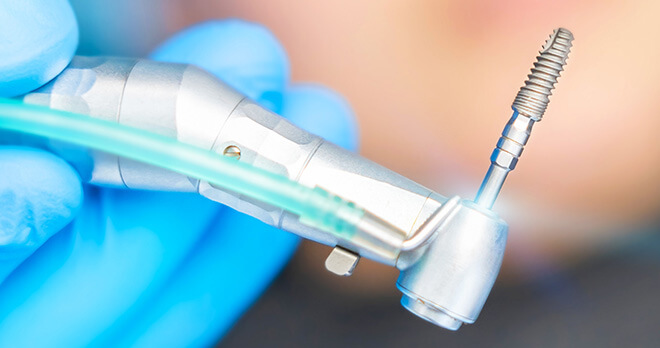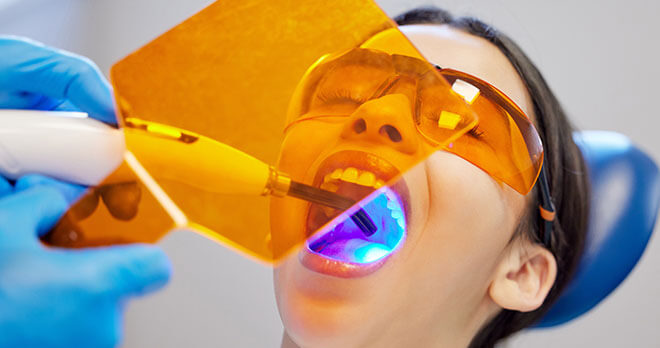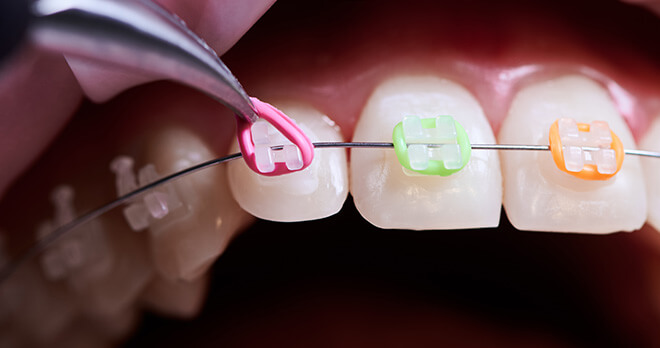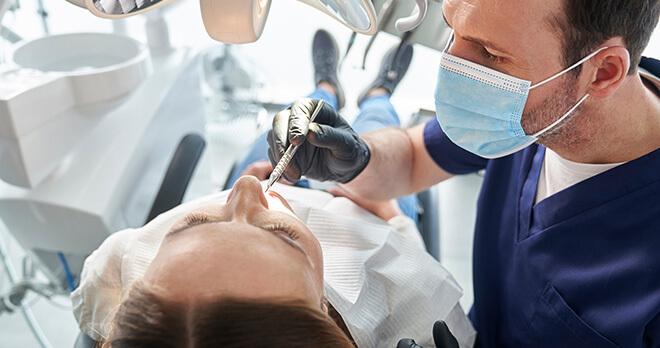Peri-Implantitis: When dental implant treatment goes wrong
Peri-implantitis is an infectious disease which causes inflammation of the gums and bone in the vicinity of a dental implant, leading to the loss of the supporting bone. In advanced cases, peri-implantitis can lead to the loss of the implant(s) altogether, leaving patients with a gap.
Peri-implantitis can occur for any number of reasons. Often patients with weak immune systems, osteoporosis, or a history of gum disease are most at risk of developing the condition. However, it can also occur because of poor oral hygiene, smoking (which causes the constriction of blood vessels), or because of complications during the surgical placement of the implants.
Treating peri-implantitis depends on how advanced the condition is. If the condition is in the early stages, it is often possible to save the implant by putting in place a more intensive oral hygiene regimen. However, if the implant is loose, it probably means that too much of the supporting bone has been lost for the implant to be saved. In these circumstances the implant may have to be removed.
Some patients might be prepared to replace the implant with an alternative prosthesis such as a gum-retained denture. However, many patients have paid a great deal of money to have implants fitted in the first place, and deliberately chose to avoid dentures. These patients would often prefer to undergo bone grafting/sinus lift procedures to enable replacement implants to be placed. The difficulty is the cost of this remedial treatment. Depending upon how many implants need to be replaced, patients could be looking at a five figure remedial treatment plan.
Many of my clients come to me after receiving failed implant treatment. As indicated above, implants can fail for a number of reasons, and not all of these point to negligent treatment. However, I do see a lot of cases where patients have received substandard treatment. Typically, cases where implants have failed due to negligence fall into three categories:
1. The patient was not a suitable candidate for implants in the first place, and the dentist in question should not have advised implant treatment. Implants should not be fitted in patients with active periodontal (gum) disease. Efforts should be made to stabilise this condition first. Alternatively, it might be that the patient is still smoking or has a very high plaque score. In these cases, clients are often able to obtain their original treatment costs.
2. The patient was not offered or afforded the appropriate follow-up treatment and oral hygiene advice to clean around the implant(s). In these cases, the disease can set in and progress unchecked.
3. The patient was not properly consented. A patient should always be able to make an informed decision about the treatment they have been advised to undergo. If a patient is not informed of the risks of the implants failing (particularly if they are in a high-risk group) and/or alternative treatment options are not offered, they have been denied the opportunity to provide informed consent. If it is the case that the patient would have opted for alternative treatment if adequately informed of the risk, these patients have a claim for the costs of the implant treatment which they would otherwise not have undergone.
In cases such as the above, patients are often left severely out of pocket or unable to pay for the remedial treatment they require.
Bringing a dental negligence claim has helped many of my clients pay for the remedial treatment they need to stabilise their current implants, or replace them with new ones.
If you have suffered from peri-implantitis, and you believe this may be the result of negligence, please contact the Dental Negligence Team.
Got a question?
You can call the team on 0800 923 2080 or message them to understand more about you potential compensation claim for dental negligence. We will get back to you at a time that is convenient to you.
Common claim types
Insights and opinions
View more articles related to Cosmetic dentistry, Crowns and bridges, Dental implants, Dental nerve damage, Extractions, Gum disease, Information, Mouth cancer, Orthodontics, Root canal treatment, Tooth decay and Wisdom teeth










